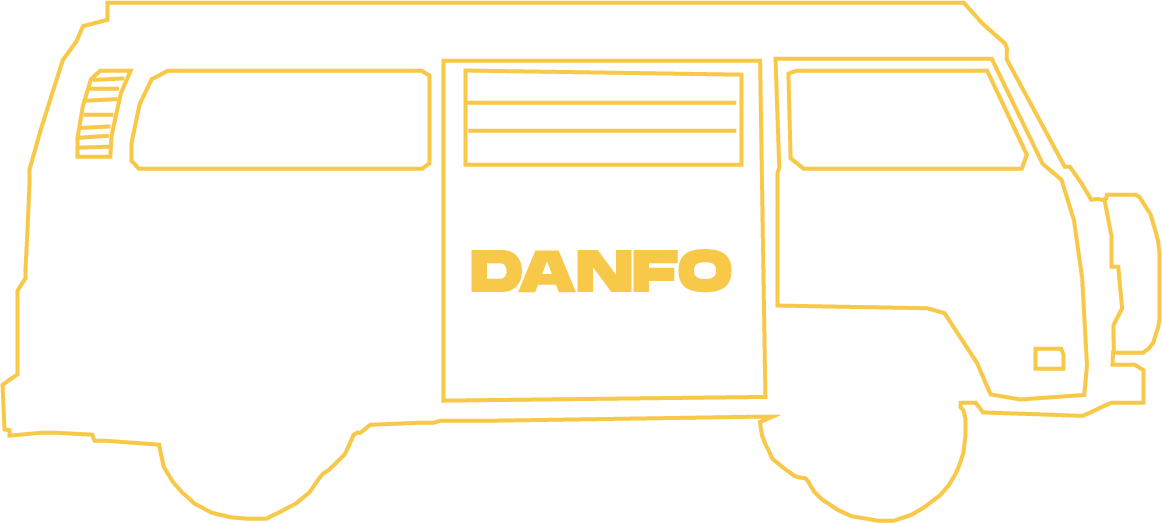Danfo is a wrapper around the Go AMQP client.
- 🧹 Reduce boilerplate code
- 🌿 Provide good defaults I'd likely use in real-life projects
- 🤠 Auto-reconnect to the broker on connnection/channel error
There are two ways in which you can send a message with Danfo
Sends a message to a single Queue.
The default exchange """ is used internally by RabbitMQ when Queue is called. Every queue is automatically bound to the default exchange with a routing key which is
the same as the queue name.
Reference: https://www.rabbitmq.com/tutorials/amqp-concepts.html#exchange-default
package main
import (
"encoding/json"
"github.com/darthchudi/danfo"
"log"
"os"
"time"
)
type Transaction struct {
Amount int `json:"amount"`
Type string `json:"type"`
Timestamp time.Time `json:"timestamp"`
}
func NewPayload() ([]byte, error){
transaction := Transaction{
Amount: 100,
Type: "Debit",
Timestamp: time.Now(),
}
return json.Marshal(transaction)
}
func main() {
url := os.Getenv("AMQP_URL")
publisher, err := danfo.NewPublisher(url)
if err != nil {
log.Fatalf("An error occured while connecting publisher: %v", err)
}
payload, err := NewPayload()
if err != nil {
log.Fatalf("payload error: %v", err)
}
err = publisher.Queue("NOTIFICATION_QUEUE", payload)
if err != nil {
log.Fatalf("Publisher error: %v", err)
}
log.Print("Published message!")
}Danfo sets the following properties on Queues by default:
- Each queue is durable i.e will survive server restarts
danfo.NonDurableQueue
- Each queue is non-auto deleted i.e will remain when there are no remaining consumers or binding
danfo.AutoDeletedQueue
- Each queue is non-exclusive i.e they can be accessed by other connections asides from the connection that declares them
danfo.ExclusiveQueue
noWaitis set to false. WhennoWaitis set to true, the server will not respond to the declare queue call. A channel exception will arrive if the conditions are met for existing queues or attempting to modify an existing queue from a different connection.danfo.NoQueueWait
- No arguments are provided for the queue declaration
danfo.QueueArguments
Internally, Danfo uses the following defaults for publishing messages:
- The default exchange
""is used - The name of the queue is used as the
routing keyfor publishing. - The
mandatoryflag is set to false. This flag tells the server how to react if the message cannot be routed to a queue. If this flag is set, the server will return an unroutable message with a Return method. If this flag is zero, the server silently drops the message.danfo.MandatoryPublishfunctional option can be used for reverting this
- The
immediateflag is set to false. This flag tells the server how to react if the message cannot be routed to a queue consumer immediately. If this flag is set, the server will return an undeliverable message with a Return method. If this flag is zero, the server will queue the message, but with no guarantee that it will ever be consumed.danfo.ImmediatePublishfunctional option can be used for reverting this
Sends a message to multiple queues. Messages are sent using a pattern.
Danfo uses a topic exchange for sending messages when Emit is called; this gives us the flexibility to scope messages to only certain queues in our topology using arbitrary patterns e.g user.login, playlist.created.
Reference: https://www.rabbitmq.com/tutorials/tutorial-five-go.html
package main
import (
"encoding/json"
"github.com/darthchudi/danfo"
"log"
"time"
)
type Cart struct {
User string `json:"user"`
Timestamp time.Time `json:"timestamp"`
}
func main() {
publisher, err := danfo.NewPublisher("amqp://localhost")
if err != nil {
log.Fatalf("Publisher error: %v", err)
}
cart := Cart{
User: "6ee6d392-227e-45c0-bad5-fb92d0a32def",
Timestamp: time.Now(),
}
payload, err := json.Marshal(cart)
if err != nil {
log.Fatalf("JSON Marshal error: %v", err)
}
err = publisher.Emit("events", "cart.click", payload)
if err != nil {
log.Fatalf("Publish error: %v", err)
}
}- Each exchange is a topic exchange
- Each exchange is durable i.e will survive server restarts
danfo.NonDurableExchange
- Each exchange is non-auto deleted i.e will remain when there are no remaining consumers or binding
danfo.AutoDeletedExchange
- Each exchange is non-internal. Internal exchanges do not accept publishes
danfo.InternalExchange
noWaitis set to false. WhennoWaitis set to true, the server will not respond to the declare exchange call. A channel exception will arrive if the conditions are met for existing exchange or attempting to modify an existing exchange from a different connection.danfo.NoExchangeWait
- No arguments are provided for the exchange declaration
danfo.ExchangeArguments()
Internally, Danfo uses the following defaults for publishing emitted messages to queues:
- The provided exchange name of type
topicis used - The provided
routing keyis used for publishing messages to bound queues - The
mandatoryflag is set to false. This flag tells the server how to react if the message cannot be routed to a queue. If this flag is set, the server will return an unroutable message with a Return method. If this flag is zero, the server silently drops the message.danfo.MandatoryPublishfunctional option can be used for reverting this
- The
immediateflag is set to false. This flag tells the server how to react if the message cannot be routed to a queue consumer immediately. If this flag is set, the server will return an undeliverable message with a Return method. If this flag is zero, the server will queue the message, but with no guarantee that it will ever be consumed.danfo.ImmediatePublishfunctional option can be used for reverting this


